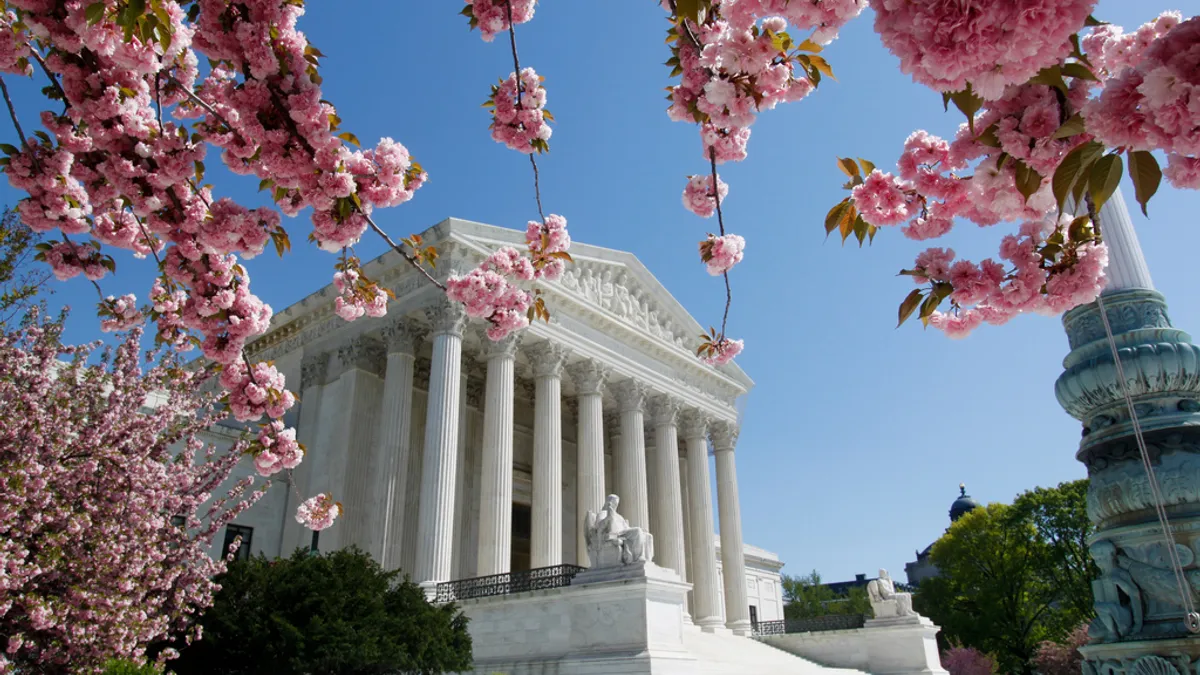Dive Brief:
- The U.S. Supreme Court ruled 7-2 that state funding for a playground at Trinity Lutheran School in Missouri could not be denied simply because the school is a religious one. The affirming decision read, “the exclusion of Trinity Lutheran from a public benefit for which it is otherwise qualified, solely because it is a church, is odious to our Constitution all the same, and cannot stand.”
- Center of Education Reform Founder and CEO Jeanne Allen said in a statement the decision was a “victory for the First Amendment’s guarantee of religious freedom for religious schools.” The funding was originally denied according to an amendment in Missouri’s constitution prohibiting the use of state funds at "sectarian" schools.
- Such amendments were passed in many states and were called "Blaine Amendments," as the result of anti-Catholic sentiments in the 19th century, according to CER. The Court did not rule on the constitutionality of Missouri’s amendment itself in this decision.
Dive Insight:
The Supreme Court decision could offer the heads of religious or parochial schools in Missouri and throughout the country more confidence in planning long-term projects and improvements such as playgrounds for their facilities in the hope that state funding will be available to assist in such construction and repairs. The Court has not been willing to accept all cases regarding religious institutions utilizing public money and facilities; for example, two years ago it decided against hearing a case brought by a Bronx, NY church who hoped to hold prayer services after hours in New York City schools.
The decision could help clarify what projects and improvements may be best suited for state funding, and the Pew Research Center reports that the “strict separation” between church and state when it comes to funding education initiatives has become increasingly permeable.
Proponents of increasing such funding also have new advocates in the White House and at the Department of Education; ED Secretary Betsy DeVos is an avowed proponent of school choice, and has advocated for the use of vouchers for students who would wish to attend religious schools. And while many would not see the ruling as being directly tied to the voucher issue, Michigan State University College of Law Professor Frank S. Ravitch wrote for SCOTUS Blog that "at its core, the Trinity Lutheran decision is about requiring states to include religious entities in public benefit programs generally open to other entities," which opens the door for religious schools in the voucher conversation. Further, Ravitch wrote, the decision overrides any state constitution or interest which would deny religious schools on the basis of those beliefs.











